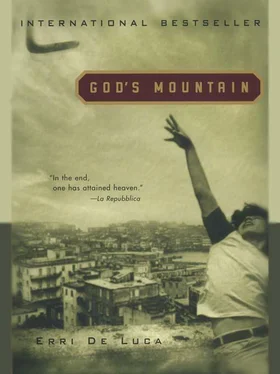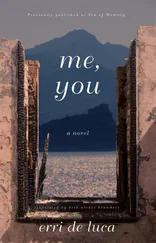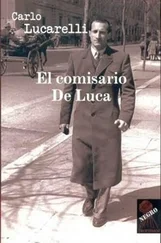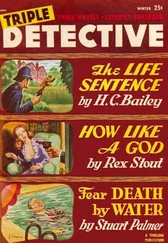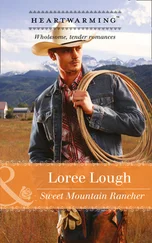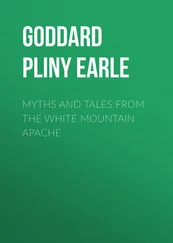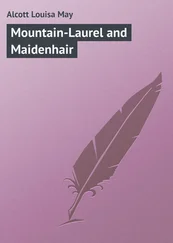
RAFANIELLO’S FACE is all crumpled. He didn’t sleep. The wings broke through the shell of his hump. It cracked like an egg, without bleeding. His jacket’s gotten fuller. He says he’s managed to open the wings. They’re bigger than a stork’s. He’s decided to wait for the night of fireworks. In the meantime he’s practicing in his room at night. The fireworks in Naples used to scare him, reminding him of the turmoil of war. “This time they’ll be bidding me farewell.” I tell him that I’ve made my decision, too. I’m going to throw the boomerang the same night. The boomerang’s wings are ready, too. “How much time do we have left?” he asks. Two weeks. From my pocket I take one of the brimstones. It’s the same color as your eyes, I say. He holds it up against the light. “Fire and brimstone. It rained fire and brimstone on Sodom and Gomorrah. Green eyes, red hair. The Heavenly Father made me look like an ember.” I wonder if his eyes are really green. What’s more, I say, they’re lit like teardrops, not brimstone. Rafaniello is getting to the bottom of his shoe pile. People have been coming by to pick them up. He’s not accepting broken ones anymore. Now everyone’s wearing shoes in Naples.
I HELP Master Errico plane some larch boards. They give off a scent of resin, a smell that clears your sinuses. Master Errico looks at the first planing and shakes his head. “We can’t use the machine,” he says. “We have to finish it by hand.” He shows me the drops of resin and says that they’re hard and would break the blade of the planing machine. Larch resin dries as hard as a rock. So I learn to move the hand planer, following Master Errico. The larch shavings are blond and not very curly. It’s like giving the wood a crew cut. At noon I realize that a feather has fallen under Rafaniello’s bench. I pick it up. It’s so light I can’t feel it in my palm. Don Rafaniè, I’m going to hold on to this to remember you by. “You’re right to say ‘hold on to’ instead of ‘keep.’ To keep is presumptuous. To hold means you realize that today it’s yours and tomorrow who knows. Hold on to the feather as a keepsake.” I think of the boomerang. I hold it tight, then I have to let it go. I take it out of my smock. Look at it, Don Rafaniè, it’s so well made that it can fly, too. We chew our bread and friarelli and stare at the boomerang. He stops eating and asks me very seriously what kind of wood it’s made from. Acacia, Don Rafaniè, a hardwood. His breath catches in his throat. He coughs loud and spits up some friarello, then he calms down and rocks back and forth in his chair, repeating, “Acacia, acacia,” with tears in his eyes, his face as red as his hair, a crunching of bones behind his back.

AS I write this on my scroll I can’t remember how to say it in Italian: did he break out in tears or did the tears break out? Who could tell at noontime? I didn’t and couldn’t understand a thing. I waited next to him without eating. I didn’t look at him. I waited. He finally managed to clear his throat and make a different sound, more like laughter, a laughter more silent than the tears that had come before. He laughed and made me laugh just to see how it cracked him up to repeat the word acacia, strangling the sound of the a and laughing, laughing hysterically, and I laugh with him, thinking that if Master Errico were to come in now and find us like this, he’d throw a bucket of cold water over us to make us stop. Rafaniello calms down and I’m happy since the laughter gave me back my appetite. I finish my bread and friarelli in four bites. I arrange the boomerang under my jacket near the feather that fell from Rafaniello’s wings.

AT THE washbasins in December the wind gets all blustery, sweeping up the dirt on the ground, polishing the nighttime sky, drawing off the heat from the houses. The boomerang is going wild. It burns the air that will carry it on its flight. My arms can’t control it. It’s like a wing with feathers. I wind myself up to toss it two hundred times with one arm, two hundred with the other, and I don’t get tired. I’m a thrower and have to force myself to wait. There’s the dark side of the moon. Maria stares at the giant lid over Montedidio, spellbound. I’m obsessed with the sea and think all the shiny points on its surface are a school of anchovies. With my broken voice I imitate the cry of the fishmonger when he comes by with a basket on his head and a scale around his neck calling out: “ ’O ppane d’o mare” ; bread of the sea. “Quiet, you’re making me think of the smell of fish,” says Maria, who can’t stand fish and would just as soon leave it in the sea. On the highest rooftop in the neighborhood she and I are keeping watch over the city. Sitting close to the ground against the bulwark, covered by the blanket, we pass the time, accomplices of the wind that mocks the television antennas and empty clotheslines. It whistles overhead, discovers our shelter, and gives us a push to bring us closer together.
MARIA HUGS me, leaning her head against my neck. We speak to each other in whispers. She says, “You get bigger every day and I’m holding on to you so that I can grow quickly, too. Only yesterday you didn’t have these muscles on your chest. Only yesterday you weren’t so right for me.” I don’t know about yesterday. Today’s already gone by, planed into the blond shavings of larchwood, the shape of the planer indented in my palm. And only toward the end of the day does my hand return to its place around the boomerang and around Maria’s shoulders. Yesterday is the part of the scroll that’s already been written on and rolled up. Maria, I ask, is this the ammore they talk about in songs? “No,” she says, “love songs are too gloomy, a lot of sloppy weeping and teardrops. Our ammore is an alliance, a combat force.” Our intimate talk flies into the wind, which tears it from our mouths.
IN THE dark we can make out the figure of a person on the roof buffeted about by the wind, calling out Maria, Maria. It’s the landlord. She goes tense beside me and doesn’t answer. I slip out of the blanket. I grab the old man by the lapels with the force of the boomerang in my arms and push him away. He keeps calling Maria and bumps into me as if I were the wind, as if he couldn’t see. He’s coming back this way, says Maria. Without a word I bounce him off my hands which are getting stronger and stronger. The boomerang under my jacket pushes him, too. The wind grabs me by my shoulders and sends me hurtling into him. I move him backward with a jolt, and beaten back, he staggers forward. I’m ready for him again and I pick him up like the arc of the boomerang. I don’t see his face. I look as far as his jacket and aim for his chest. With the last push I slam him against the door to the stairway, which opens up behind him. He realizes there’s nothing left to do, doubles over in pain from the blows to his chest, from Maria, I don’t know, he doubles over, sits down, and cries. I see a defeated old man, beaten outside and in, and still I feel no pity. I go back to Maria, who’s standing up. She puts her cold arms around me and forces a frosty kiss inside my mouth, tooth to tooth. Her shivering begins to pass.

Читать дальше
